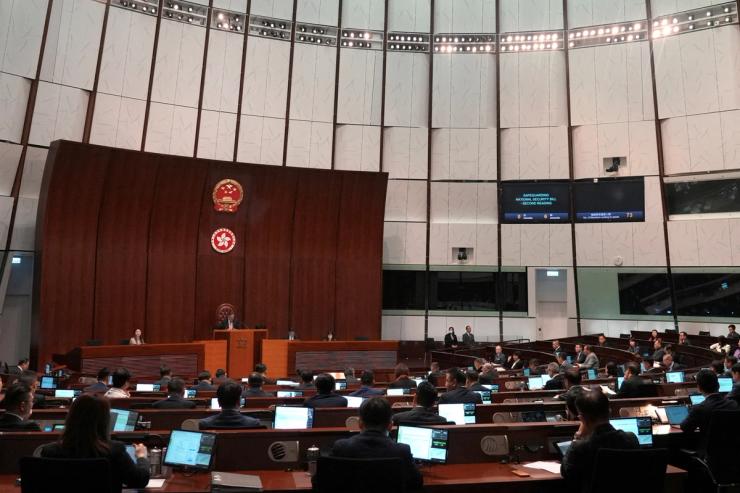The News
Hong Kong passed a sweeping new security law on Tuesday, giving the government further powers to quash dissent in the southern Chinese city.
The fast-tracked legislation comes on top of a similar security law imposed by Beijing after massive pro-democracy protests in 2019, and critics warn it poses major risks to civil liberties.
The law, which will take effect on March 23, contains tough penalties for anything the authorities deem as threatening national security, including life imprisonment for treason and insurrection.
SIGNALS
The law was passed with unprecedented speed
The law was approved in just 11 days — the quickest a bill has ever passed in Hong Kong. It was given a feedback window of just one month when it was first suggested in January — prompting the European Union and the U.K. to demand more time for criticism of the suggested measures. Lawmakers were certain to adopt the legislation, with the legislature’s president waiving a formal notice period ahead of the vote, Bloomberg noted. The rush marks a change from how elected officials in Hong Kong have previously debated at length any legislation that undermines personal freedoms in the semi-autonomous city.
The law creates potential risks for foreign citizens and businesses
Hong Kong leader John Lee said the legislation would safeguard Hong Kong from foreign interference and Western spying, raising concerns of the city’s growing crackdown on foreign nationals and businesses. In a letter to U.S. Secretary of State Anthony Blinken last week, a group of U.S. lawmakers warned of the risks the bill posed to U.S. citizens in Hong Kong, the Wall Street Journal reported. The law criminalizes the possession of state secrets, which some international financial firms fear could include information about the state of the economy. It also expands the definition of espionage to such an extent that it could have a chilling effect on all exchanges with foreign diplomats, one law professor at the University of Hong Kong warned the government last month.
Crackdown could risk Hong Kong’s status as a global financial hub
Some experts predict that the law could weaken Hong Kong’s international reputation, given concerns that it could be used to target foreign businesses. The bill “could further damage Hong Kong’s standing as a global hub, one that is open for business,” Thomas Kellogg, a professor in Chinese law, told the Financial Times. Some firms have already pulled out of Hong Kong following the ratification of the 2020 security law, and the city’s economy has struggled in recent years. “The new national security rules have eroded Hong Kong’s distinctiveness for foreign firms and Chinese exporters — its comparative advantage is less clear than it once was for many businesses,” Mark Wu, a Harvard professor in economic law, told The New York Times.


